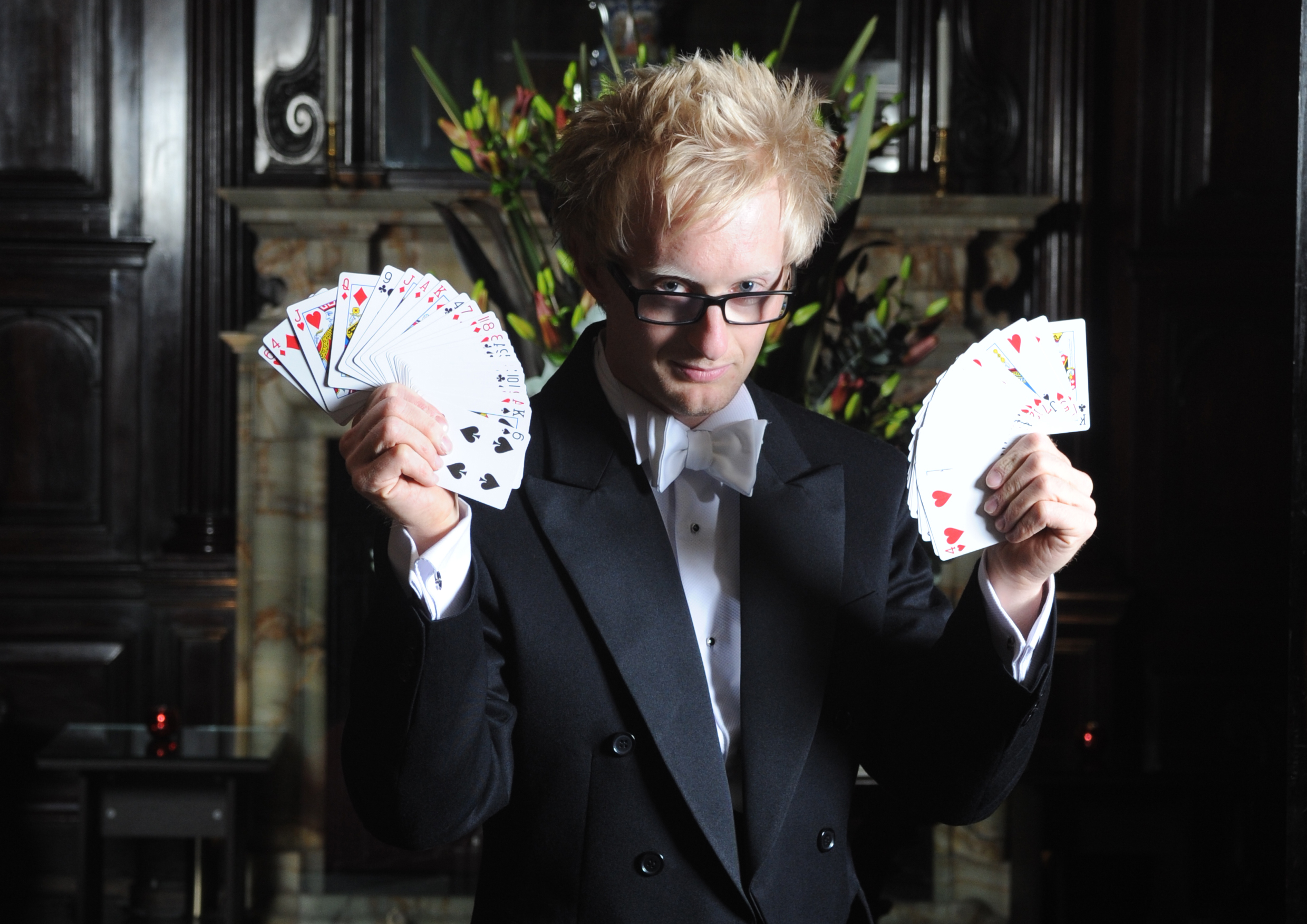The Magic Hour is London’s premier magic show. Enjoy this award-winning magic show in an evocative London drawing room at the 5-star Sheraton Park Lane where you can witness Tony Middleton an international award-winning magician and producer in action. We got to spend some time with Tony to talk about the show and the illusion of magic and keeping things secret!
How long you have been performing magic?
I have been performing magic since I was about 10 years old, I think most boys get a magic set for Christmas around that age. I was given a book on self-working card magic. I tried a few tricks, and was pleasantly surprised when they worked, and I got a good reaction from my audience. I was bitten by the magic bug and wanted to know more. After learning basic magic tricks, I set-up my own magic club at school, and before finishing my A levels, I staged a full illusion show in the school theatre. I also joined my local magic society – the Leicester Magic Circle – being one of the youngest members at the time to pass the audition. They gave regular lectures on different types of magic at the Grand Hotel in Leicester – all of a sudden, a whole world of possibilities opened up! I went on to study Drama & Theatre at degree level, and Theatre Directing at postgraduate level. I also joined the world-famous Magic Circle in London.
Tell us about The Magic Hour what can people expect?
The Magic Hour is a theatrical parlour magic show like no other, It takes place in the dark wood panelled Oak Room of the Sheraton Grand Park Lane – an atmospheric space that conjurors the imagination. The audience is taken on a journey thought magic’s past – evoking sleight of hand, Victorian illusion, and demonstrations of mind-reading. It’s very personal, and everyone has the opportunity to interact with the show if they want to. It’s also a show with an intriguing narrative. I can’t tell you what it’s about without revealing too much, but let’s just say that the show is somewhat of a magic trick in itself. It features a range of classic effects, along with some that are original to me, and is close enough for everyone to see. There are no camera tricks, and in fact very little technology at all. It’s old school magic, and there’s nowhere to hide. It all happens right in front of you, and sometimes in the audience’s hands.
What’s the first thing people ask you (or ask you to do) once they find out about your profession?
Well obviously, when people know you’re a magician they say ‘can you show me a trick?’ However I don’t really go around advertising what I do outside of my show, so to speak. I don’t want to perform constantly, and I’m not as green as I used to be when I started. I think that people have more respect for you if you just some them a bit of magic very occasionally, rather than trying to perform at any moment you can. It’s much more special that way, and it’s on my terms too. I may show them something, or not – it’s my choice. Of course, with social media playing a big part in publicity these days, I do post the occasional piece of magic there. It’s a great way of spreading awareness of my shows. Of course, at home I’m always working on magic, and my wife often picks things up around the house and says ‘is this a magic trick?’ You can never tell if it’s a prop or just something normal!
What is your favourite magic act and why?
My favourite magic acts are ones that you won’t have heard of, and who no one of our generation has seen perform. Everyone’s heard of sawing a woman in half, levitating a woman into the air, or pulling a rabbit out of a hat. These effects were created around the turn of the century, and some of the methods are still being used today. The Victorian magicians were so inventive. I discovered a parlour illusion in an old book, which I use in my show now, which I know is hardly ever seen. The props were constructed at my request by an illusion builder. The method is incredibly clever, and I’m so pleased to own it. I love that sometimes the secret is even more interesting that the effect the audience witnesses. My inspiration is those magicians who I have only read about, but never seen. In a way, I think that’s better – I can create my own idea of what they may have been like. Some had very chequered personal lives. There was a mind-reader in the Edwardian period called ‘Alexander’ who was one of the most financially successful magicians of his time. However, he was known to have killed 4 men, and married anywhere between 7-14 times – sometimes to two women simultaneously. I’m surprised there hasn’t been a film made about him. Maybe I should write a screenplay! The ‘behind the scenes’ viewpoint on illusion is really fascinating. I love the way that cult films like The Prestige draw out that slightly darker backstabbing world of magic. The Magic Hour is very much of that era and feel too. How far would you go to protect a good secret? How deep does the rabbit hole go? I think audiences are intriguing by a slightly darker and more evocative take on magic.
What is magic, is it science, art, trick, or reality?
Magic is the illusion of performing feats that defy the laws of nature. Everyone knows that objects can’t really disappear or float – and yet that’s what they see happen right in front of them. It’s not really possible for a mind-reading to extract deeply personal thoughts from your brain… or is it? Well, what is a trick, and what is reality? There comes a point when the line between them becomes blurred. The job of a magician is to create the illusion of the impossible – by whatever means necessary. And of course, the method must not be detectable or all is lost. In some ways, it’s a battle of wits. People know there’s a secret, but they don’t what it is, or the magician’s methods. They’ve heard about things like ‘misdirection’, but what is it and how does it work? Magic is really a combination of psychology, showmanship, cunning, and ultimately weaving together a web of lies to arrive at a perfect moment of illusion. The more logically you think, the harder it is to work out the trick, because magic has been specifically created to avoid these kinds of thought patterns. I realise I’m speaking quite cryptically here – but I’m just giving you a few clues…..After all, I have signed up to the code of The Magic Circle – we are not allowed to reveal our secrets!
How and how often do you practice, and who serves as a test audience for your new routines?
I practice several times a week to keep my skills sharp. It’s similar to being a musician in that respect. At home I can practice sleight of hand as well as run lines of script for the show and general choreography – there’s a lot you can do on your own. There’s no substitute for performing in front of a live audience, that’s where you really learn the most about your craft. Magic by its very nature is highly interactive, and no audience is the same, as they are such a large part of the show, it can create a completely different feel every time. And that’s what I love about it. It really is different every night. Generally, I test new tricks first on family, then close friends, and then I may add the routine into a show of already established material. There comes a point though when you just have to make a jump – you prepare as best you can, but it can sometimes feel like a leap outside of your comfort zone. But this is where the real magic happens. Sometimes you can discover an effect has a much bigger impact on an audience than you expect. You have to dream big, and really go with your instinct. Sometimes you are rewarded.
Why keeping a secret is paramount in the art of magic?
Without secrets, there is no magic. I was once told however much someone begs you for the secret, do not tell them, because as soon as you do, they are no longer interested. Everyone says ‘oh but I won’t tell anyone – just tell me’. Magicians are the keepers of secrets – that’s what we do best. Sometimes those secrets are simple, and sometimes they are complex. I think that at heart everyone loves a secret. ‘I know something you don’t’ gives the magician a certain power. Of course your next question is – well how can you learn if no one will teach you the secret? The answer to that is… they will teach you if you really want to learn to be a magician – but secrets are gradually passed down from master to student. The best secrets are held back for later, when you have demonstrated your commitment to the art. Although some secrets are held very close to the chest, and can make a magician’s career, even professionals will sometimes pay a high price for the inner workings of a good trick.
What goes through your mind when watching a magician perform and who impresses you the most?
When I watch magic, I try to be a normal member of the audience. The funny thing is that some magicians will only be impressed or applaud if it fools them. In truth magic is a performance art for the public. It doesn’t matter what I know or don’t. Just because it fools me, doesn’t make it a great performance. On the contrary, details that interest magicians are of little or no interest to general theatre-goers. What’s important is to make an interesting show that draws the audience in and evokes a feeling of magic. As I have a background in theatre directing, I am always interested in the journey of the show, and how it is put together – not just the inner workings of the tricks – but how one creates a piece of theatre. Otherwise, it is just a collection of unconnected routines. What impresses me the most is when a show is really well thought through, and unique in its construction. This is the difference between someone who is an artist, and someone who just performs tricks.
What is your advice to people who wish to be a magician?
Be inspired to do something different. It’s easy to copy others, but what you really have to do is be true to who you are, and what you can bring to magic. Stay true to your instincts – if something doesn’t feel right, there’s probably a reason. At the end of the day, a magic trick is just a tool – the performer brings their own personality to it. A simple trick can be made great or not by the person presenting it. Also go and read the oldest magic books – rather than purchasing the latest trick that everyone else will also be doing. That will give you a solid foundation, and remember than nothing is really that new in magic. The oldest secrets are some of the best. If you want to learn more, you can join our magic school online and learn a trick for free right now. Go online.
Where can people follow you on Social Media?
Facebook, Twitter and Instagram.
Book now online to witness a spell-binding evening.

